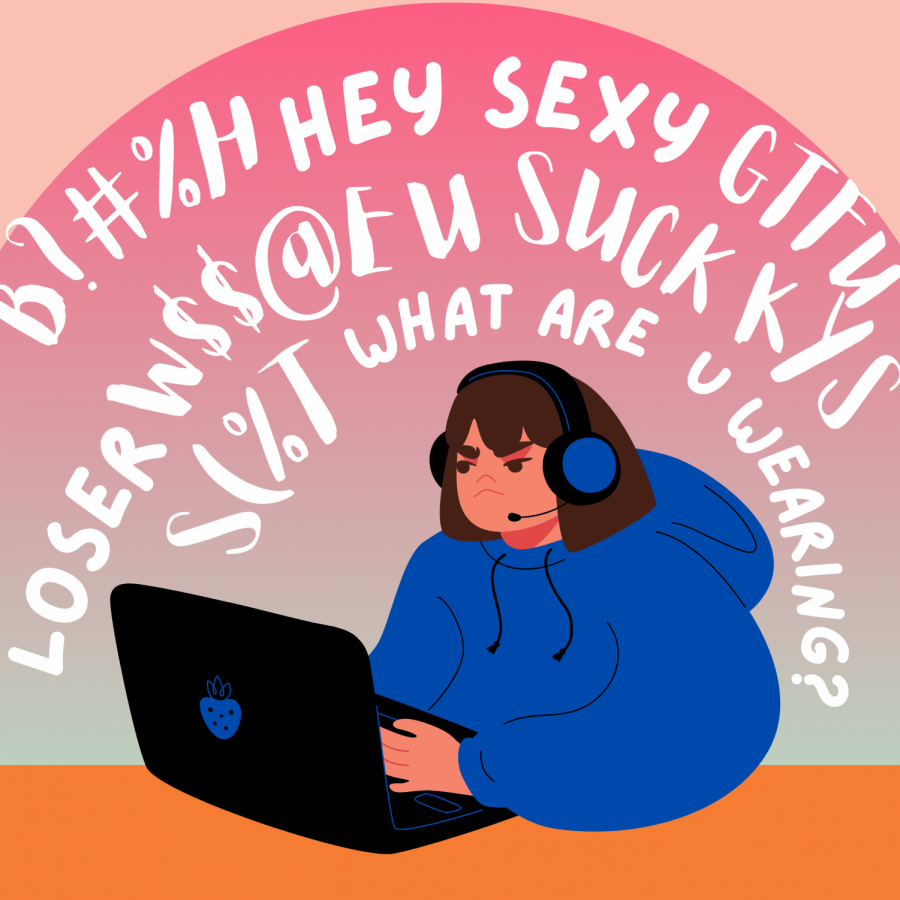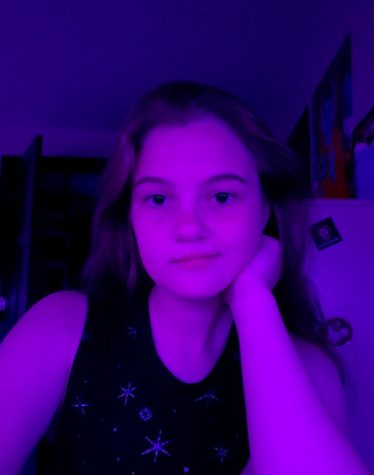The never-ending misogyny of gaming culture
In a study by Reach 3, 59% of women hide their gender to avoid harassment from players.
September 10, 2021
Ever since the creation of “Pong” in 1958, video games have been a dominant force in the entertainment industry, and for decades, there have been many shifts in market and audience. Regardless of changes in demographics, the gaming world seems to be in constant turmoil. Now, recent reports have reminded us of the social issues that plague the game culture, particularly the treatment of women.
Back in July, the California Department of Fair Employment and Housing filled a lawsuit against the industry titan Activision for discrimination and sexual misconduct towards their female staff members after a two year investigation. The DFEH alleges that the “frat boy culture” created a toxic work environment for the women and other marginalized groups working for the company. Women were paid less compared to their male counterparts, subjected to sexual harassment and groping during “cube crawls” (an activty were the men would come to work drunk) and were pressured into not reporting misconduct by higher-ups. After the company denied the accusations thousands of workers staged a walkout in protest, and those who could not attend opted to show solidarity online. Those who organized the walkout then drafted an open letter to Activision, which was promptly signed by over 3,100 former and current employees according to NBC. The issues are still ongoing, but it seems as though Activision is headed on a downward spiral, and project leads and investors have since been attempting to cleanse the company of its sins. Including re-naming the “Overwatch” hero Jesse McCree, who shares his name with a long time developer, pictured in photos of the now infamous Blizzcon “Cosby Suite” according to Engadget and Kotaku. Unfortunately, I can not say I was very surprised, considering the gaming world’s history.
Let us take a look back at the wonderful years of 2014 and 2015, back when the predominant culture war known as Gamergate took over the Internet. On one side, there were independent game developers and game critics, most of them being women On the other side, an army of stereotypical gamer boys, who dabbled in the art of misogyny. In hindsight, it was less of a culture war and more a malicious, targeted harassment campaign or a backlash to progressives in video games. The first target being Zoë Quinn, creator of “Depression Quest.” Quinn’s ex-boyfriend spread false accusations that Quinn had an inappropriate relationship with Kotaku journalist Nathan Grayson in exchange for a positive game review, and a swarm of antifeminist gamers rallied behind them to retaliate. Then there was Giant Spacekat co-founder Brianna Wu, who had mocked the Gamergate advocates for “fighting an apocalyptic future where women are 8% of programmers and not 3%” on Twitter and was subsequently doxed and harassed. Then, of course, there was feminist media critic Anita Sarkeesian, whose series “Tropes vs Women in Videogames” triggered a tidal wave of online abuse. All three of these women were bombarded with abusive messages, slurs, threats of violence, and rape for daring to challenge the absolute sovereignty of the men in the community. There was no rhyme or reason, no discussion or understanding, Gamergate was just an excuse to put women down. “That’s the reason I don’t like the words ‘troll’ and ‘bully’ – it feels too childish. This is harassment and abuse,” Sarkeesian told the Guardian during the height of the Gamergate incident. “GamerGate is a temper tantrum: It’s just a scary, violent, abusive, temper tantrum. It’s an attack and an assault on women in the gaming industry. Its purpose is to silence women, and if they can’t, they attempt to discredit them.” Even after Gamergate faded into irrelevancy, men have still managed to find reasons to put down the women in the community.
Twitch as a streaming platform really started taking off back in 2013 and has accumulated millions of users. With Twitch being designed to be interactive and connect viewers with creators, it is easy to send hate to streamers. Last year, multiple creators spoke out about sexual misconduct from their fellow Twitch streamers, prompting creator JessyQuil to compile an extensive spreadsheet of the allegations. The document listed around 200 names, and spread across the Internet, eventually reaching the New York Times. And it’s not just coworkers guilty of inappropriate behavior; the fans are just as guilty. There is a common perception in gaming culture that women have an easier time on Twitch and that they use their looks to draw attention to themselves, but that is only true in the imagination of a misogynist. In a study published by Indiana University, researchers examined 200 male and female channels and analyzed over 70 million chat messages. The study found that viewers on women’s streams speak in much more objectifying terms, and the testimony of women on Twitch further proves it. Streamer YourStarling describes it as being trapped in a where men either made inappropriate advances or praised her for her content despite her looks.
So, in the wake of these more recent revelations, we, the consumers, are forced to confront an uncomfortable truth about the game culture as a whole; it is a toxic hellspace for women, and it has been this way for years. As we have seen, the “frat boy” culture extends to the player base, not just the developers. This seems to be an endless cycle of misogyny and general hatred in the gaming community that has been acknowledged for some time, yet it continues to fester. Online video gaming is such a hostile territory to the point where aggression in online lobbies is considered a staple of videogame culture. The anonymity provided by online games often emboldens players to “speak their mind” no matter how repulsive, and that feeling of social immunity fosters contempt, making the community more and more unwelcoming. If sexist toxicity continues to be dismissed as just part of the gaming culture, we will be stuck in this cycle forever. We should move beyond the outdated concept of a misogynistic gamer guy, and stop enabling player base infighting and abuse, and if we can manage that, maybe we can all enjoy ourselves once again.








